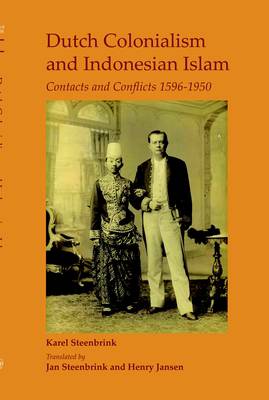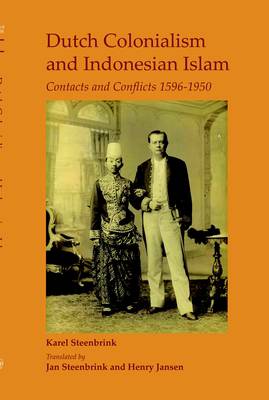
- Afhalen na 1 uur in een winkel met voorraad
- Gratis thuislevering in België vanaf € 30
- Ruim aanbod met 7 miljoen producten
- Afhalen na 1 uur in een winkel met voorraad
- Gratis thuislevering in België vanaf € 30
- Ruim aanbod met 7 miljoen producten
Zoeken
Dutch Colonialism and Indonesian Islam
Contacts and Conflicts 1596-1950. Second Revised Edition
Karel Steenbrink
€ 100,95
+ 201 punten
Omschrijving
This book tells the story of the contacts and conflicts between muslims and christians in Southeast Asia during the Dutch colonial history from 1596 until 1950. The author draws from a great variety of sources to shed light on this period: the letters of the colonial pioneer Jan Pietersz. Coen, the writings of 17th century Dutch theologians, the minutes of the Batavia church council, the contracts of the Dutch East India Company (VOC) with the sultans in the Indies, documents from the files of colonial civil servants from the 19th and 20th centuries, to mention just a few. The colonial situation was not a good starting-point for a religious dialogue. With Dutch power on the increase there was even less understanding for the religion of the muslims . In 1620 J.P. Coen, the strait-laced calvinist, had actually a better understanding and respect for the muslims than the liberal colonial leaders from the early 20th century, convinced as they were of western supremacy.
Specificaties
Betrokkenen
- Auteur(s):
- Uitgeverij:
Inhoud
- Aantal bladzijden:
- 176
- Taal:
- Engels
- Reeks:
- Reeksnummer:
- nr. 7
Eigenschappen
- Productcode (EAN):
- 9789042020719
- Verschijningsdatum:
- 1/01/2006
- Uitvoering:
- Paperback
- Formaat:
- Trade paperback (VS)
- Afmetingen:
- 155 mm x 235 mm
- Gewicht:
- 276 g

Alleen bij Standaard Boekhandel
+ 201 punten op je klantenkaart van Standaard Boekhandel
Beoordelingen
We publiceren alleen reviews die voldoen aan de voorwaarden voor reviews. Bekijk onze voorwaarden voor reviews.











